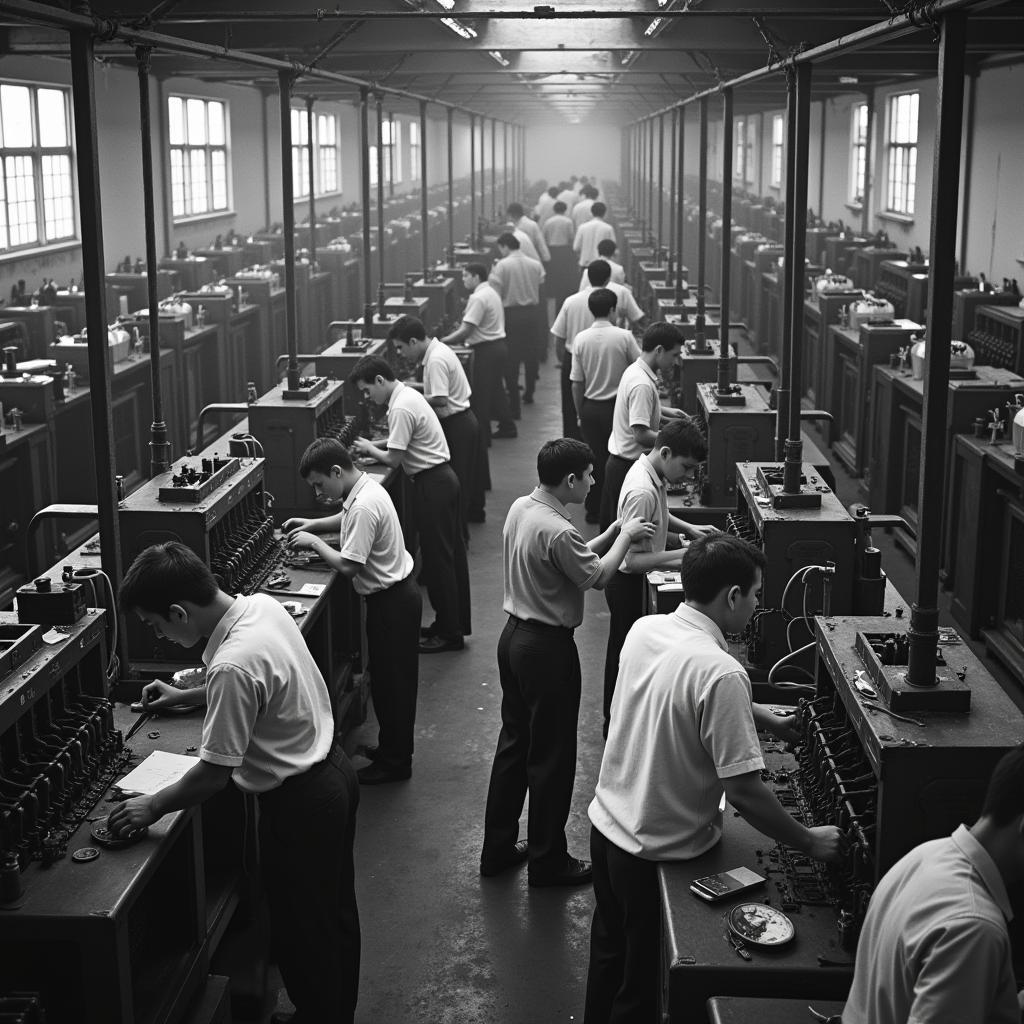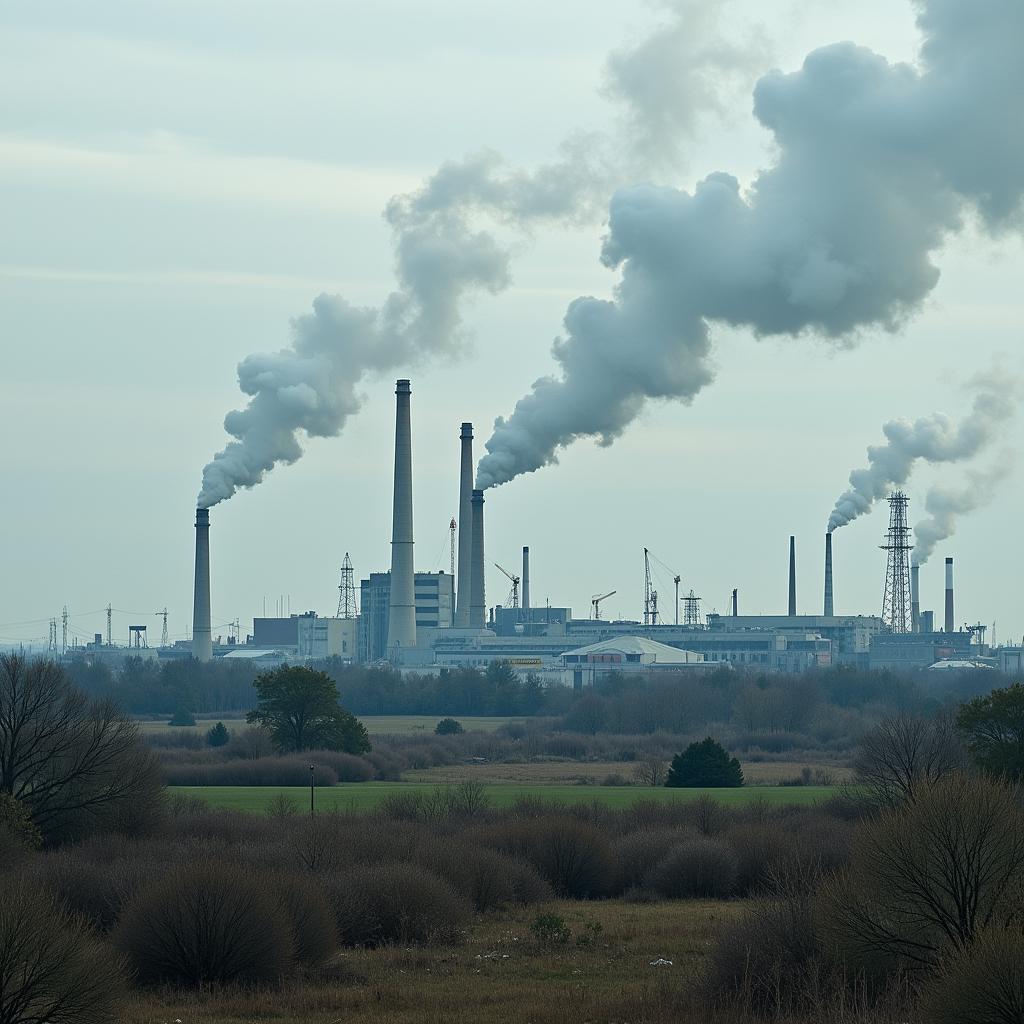An industrialized society is one defined by the transition from a primarily agricultural-based economy to one dominated by manufacturing and industry. This shift, beginning in the 18th century with the Industrial Revolution, profoundly reshaped social structures, economic systems, and the very fabric of human existence. But what exactly characterizes an industrialized society, and what are its implications for the world we live in today?
Industrialized societies are marked by several key characteristics. First and foremost is mass production, facilitated by technological advancements like the steam engine and the power loom. This leads to a significant increase in the availability of goods and a corresponding rise in consumerism. Closely related is the growth of factories and urban centers, drawing people from rural areas in search of work. This urbanization creates new social dynamics, often leading to both opportunities and challenges. The very nature of work itself transforms, with specialized labor replacing traditional craftsmanship. This can lead to alienation, as discussed in Durkheim mechanical society, but also opens avenues for greater economic mobility.
The Rise of Industrialization: A Global Phenomenon
The Industrial Revolution, starting in Britain, quickly spread across Europe and North America, fundamentally altering the global landscape. This transformation wasn’t limited to the West, however. Japan, for instance, underwent rapid industrialization in the late 19th and early 20th centuries, demonstrating the adaptability and transformative power of this new societal model. Understanding the nuances of how industrialization unfolded in different contexts is crucial to grasping its full impact. One aspect to consider is the relationship between industrialization and societal structures, as explored in functionalist émile durkheim viewed society as.
Social and Economic Impacts of Industrialized Societies
The shift to an industrialized society brought about profound social and economic changes. The emergence of a capitalist economic system, with its emphasis on private ownership and free markets, became a defining feature. This system, while generating wealth, also created significant inequalities, leading to social unrest and the rise of labor movements. The concentration of power in the hands of industrialists and the exploitation of workers became pressing concerns. Another significant impact was the rise of a middle class, fueled by new opportunities in management, administration, and the professions. This growing middle class played a crucial role in shaping political and social landscapes.
 Factory Workers in an Industrial Society
Factory Workers in an Industrial Society
The Future of Industrialized Societies: Towards a Post-Industrial World?
Many scholars argue that we are now transitioning into a post-industrial society, characterized by the dominance of the service sector and the increasing importance of knowledge and information. This shift is driven by advancements in technology, particularly in computing and communication. The rise of the internet and globalization are further accelerating this transformation. Examining the trajectory of industrialized societies helps us understand where we are headed and the challenges we face in this evolving landscape. Considering alternative societal models, such as the one discussed in marshall sahlins the original affluent society, can provide valuable insights.
The Role of Technology and Innovation
Technological advancements continue to reshape industrialized societies. Automation, artificial intelligence, and robotics are transforming the nature of work, leading to both opportunities and anxieties about job displacement. The increasing reliance on technology raises questions about the future of work, the skills needed to thrive in a changing economy, and the potential for widening inequalities. Exploring resources like the industrial society and its future pdf can provide valuable perspectives on this evolving landscape.
 Technological Advancements in a Post-Industrial Society
Technological Advancements in a Post-Industrial Society
Challenges and Opportunities in an Industrialized World
Industrialized societies, while offering many benefits, also face significant challenges. Environmental degradation, resource depletion, and climate change are direct consequences of industrial activity. Addressing these challenges requires a shift towards sustainable practices and a rethinking of our relationship with the natural world. Inequality, both within and between nations, remains a persistent problem. Furthermore, the rapid pace of change can lead to social disruption and feelings of uncertainty. Despite these challenges, industrialized societies also present opportunities for innovation, collaboration, and the creation of a more just and equitable world. For instance, the role of artists in various societies, as discussed in in nonindustrial societies artists, can shed light on how creativity can contribute to social change.
 Environmental Challenges in an Industrialized Society
Environmental Challenges in an Industrialized Society
In conclusion, understanding what an industrialized society is—its defining characteristics, its historical evolution, and its future trajectory—is essential for navigating the complexities of the modern world. While industrialization has brought about unprecedented advancements, it also presents significant challenges that require collective action and innovative solutions. We must strive to create a future where the benefits of industrialization are shared equitably and sustainably.
FAQ
- What is the main difference between an agricultural society and an industrialized society?
- What are some examples of industrialized countries?
- How did the Industrial Revolution change social structures?
- What are the key characteristics of a post-industrial society?
- What are some of the environmental challenges associated with industrialization?
- How has technology impacted industrialized societies?
- What are some potential solutions to the challenges facing industrialized societies?
For further information or support, please contact us at Phone Number: 02043854663, Email: [email protected] or visit our address: Khu 34, Bac Giang, 260000, Vietnam. We have a 24/7 customer support team.